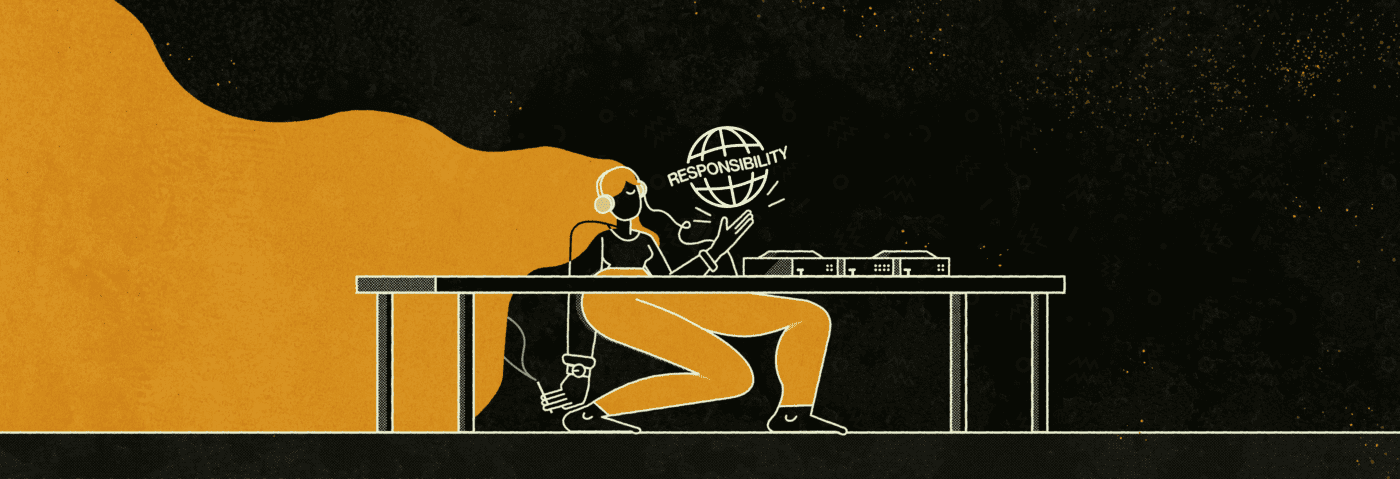While the scenes from Liverpool’s ‘First Dance’ event were a joy to behold, writer Isobel Moloney looks at the broader issues raised by who was on the bill.
There’s no doubt that thousands of dancers in ecstasy as Ultra Naté’s ‘Free’ blew out from the speakers in a packed Liverpool warehouse was a hopeful sight. We’re not far from ‘normal’; we can almost touch that crowded dancefloor. This weekend, ‘The First Dance’ represented an important point of hope for dance music, a result of Circus founder Yousef’s work alongside government and local authority bodies to pull together a pilot event to test the risk of COVID-19 transmission. With anticipation bubbling up about what this could mean for the future, it is undeniable that the UK’s first legal rave in over a year is going to set a powerful precedent for post-pandemic dance music.
Over the last year, many of us have had a lot of time to sit back and consider what we want dance music to be when it returns to our clubs in full force. For most, this has been a utopian vision of inclusivity, diversity, and a certain kind of democratisation; away from Business Techno and towards a social consciousness that has often been lacking in the industry.
Simultaneously, we have witnessed many big name DJs being booked for raves in countries such as Mexico and India that are not socially distanced and have inevitably contributed to the spread of COVID-19 like wildfire, causing unmanageable levels of infections. Countless DJs have played in India, which is now undergoing the most catastrophic surge in cases that we have seen throughout the pandemic – hospitals are entirely overrun, there is a nationwide oxygen shortage and mass cremations are being held in parks and empty lots across Delhi.
Sven Väth, billed for ‘The First Dance’, has played tours of India and Mexico in the past year, with these events inevitably contributing to a dramatic upturn in COVID-19 cases. So, the question must be asked: what precedent are we setting if we allow DJs such as Sven Väth, who played at events across India less than three months ago, to have the privilege of being at the forefront of our scene as we finally see raves return?
It’s a precedent where the industry is willing to disregard bad choices and even worse consequences, and it comes down to one thing: dance music is allergic to accountability. This reaches into every nook and cranny of the industry, from boldly ignoring the part DJs have had to play in plague raves, to a dangerous sexism that is prevalent in the industry, to the repetition of the same predominantly white festival line-ups in spite of ongoing discourse surrounding racism in dance music.
Where does this aversion to accountability come from? As much as we would like to believe that dance music is on the fringe, the mainstream industry is tied up in the establishment – a dance music industrial complex with a set of practices that is near-impossible to crack. The money-making potential of a line-up overtakes any sense of accountability and holds back any progress towards this ‘utopia’ of community, inclusivity and social consciousness.
It’s hard to ignore that it’s been a challenging year for the music industry and the uncertainty surrounding upcoming events continues; naturally it is easy to go for the safe-bet, big-name DJs that are guaranteed to sell. However, this becomes dangerous when these same individuals have played raves in developing countries that may not have the same structures to contain the spread of the virus, seemingly without any thought to the consequences. In practice, DJs like Sven Väth are able to continue this irresponsible behaviour because it is continuously swept under the carpet.
The industry is miraculously skilled in turning a blind eye at every turn – you only have to look at how Erick Morillo continued a career for thirty years while assaulting and abusing women to see this in practice. Even after his death, DJs came out in waves paying tribute to Morillo to the tune of ‘everybody makes mistakes’, an incredibly harmful message to send to victims of assault, and ignorant to the systems in place that allow harm to continue without consequence.
There is a clear disillusionment building. It’s tiring to see the same problems repeated in a cycle –the same absence of conscience from DJs playing at super-spreader events, the same lack of diversity, the same systems and practices consistently being upheld that ignore real problems in the industry.
The ecstatic scenes from ‘The First Dance’ were a light at the end of the tunnel, but it stands as a reminder that plague rave DJs are happy to carry on business-as-usual. A higher standard needs to be set as we meet this turning point and we are finally able to dance again, and it will take the work of promoters, agents and the DJs themselves to uphold this. Responsibility needs to be taken, and choices need to be made that represent what we want dance music to be. As we find our way out of the pandemic and can take action on our big ideas, we must start considering how to hold individuals in the industry accountable if we want to move forward, towards a dance music scene that is truly focused on the collective.
Isobel Moloney is on Twitter.
